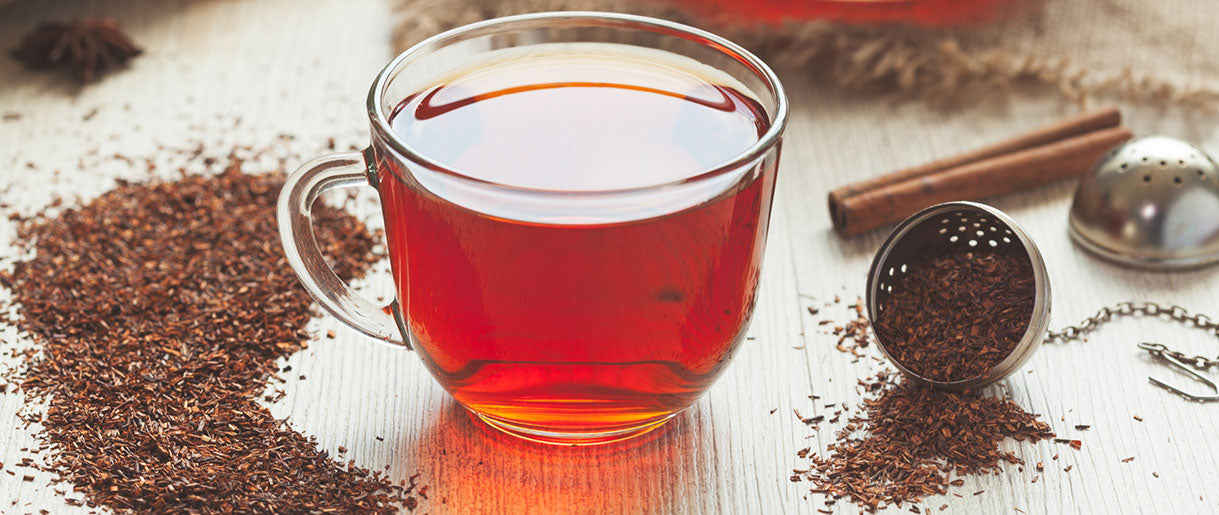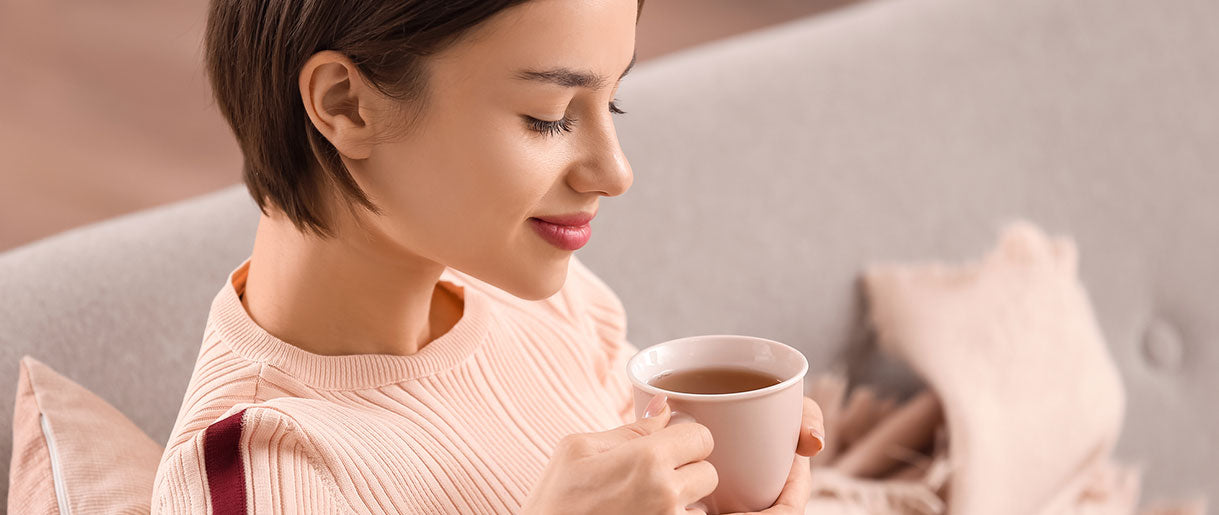Several things can help you improve your sleep. First, go to bed at the same time every day. Then, relax for an hour before bedtime and have a cup of tea.
It is believed that consuming tea before bed helps you fall asleep more soundly and will also improve the quality of your sleep. Numerous herbal teas contain substances that speed up the process of falling asleep by attaching to GABA receptors in the brain, which are neurotransmitters that aid in the process. Additionally, if you make it a habit, drinking tea before bed can teach your brain that it's time to get ready for sleep.
Here are the 13 best teas for sleep that will help you fall asleep more quickly and get a better night's sleep overall.
Best Bedtime Tea For Sleep
Since many herbal teas can help with insomnia, tension, and anxiety, they have been used for generations as natural sleep aids. Some have even been researched for their capacity to improve sleep.
Below we have outlined the thirteen best teas to sleep, many of which, in addition to promoting better sleep, have myriad other health benefits.
1. Calming Chamomile Tea

Chamomile tea is an herbal beverage with a delicate floral flavor and potential health advantages. For thousands of years, it has been used medicinally to treat anything from hay fever and digestive pain to wounds and insomnia. It's the primary component in "sleepy time" teas today.
The tea is a mild sedative. It contains apigenin(1), a chemical that acts on the brain's benzodiazepine receptors, similar to how some drugs, including Ambien, work to treat insomnia.
And according to a 2019 review(2), this earthy, sweet tea can alleviate generalized anxiety disorder and help with sleep quality.
2. Relaxing Reishi Mushroom Tea

You may be surprised that one of the best tea for sleep is a mushroom, but it's true! Reishi, also called the "spirit mushroom," is utilized for various purposes, including its somewhat calming effects on the nervous system.
Reishi mushrooms(3) are mainly used as an insomnia remedy by Chinese and Japanese herbalists. It can help with anxiety and depression, so when used before nighttime, you'll sleep better.
Your natural biorhythm can be preserved with the help of the mushroom's sleep-promoting qualities. It encourages deep sleep, peace, and tranquility, waking up feeling rested.
It is best to consume adaptogens and medicinal mushrooms regularly. Reishi's natural powers develop gradually, and you might not see the results right away.
3. Sleep Better With Low-Caffeine Green Tea

Green tea is recognized for its distinctive flavor and weight loss benefits. Interestingly, some research implies that it may enhance sleep quality and combat insomnia.
One small study, for instance, indicated that drinking low-caffeine green tea, as opposed to ordinary green tea, was associated with better sleep quality(4), less stress, and less fatigue.
Epigallocatechin-3-O-gallate (EGCG), a compound in green tea, may be to thank for the calming effects of the beverage, according to another research(5).
If you intend to consume green tea close to sleep, select a variety with little or no caffeine.
4. Lulling Lavender Tea

Next on our list of best tea for sleep is lavender. It is well-known for its recognizable purple blossoms and its sumptuous, mellow aroma. Lavender flowers can be used to prepare a calming drink that can help you get a good night's sleep, though aromatherapy uses them more frequently.
Lavender interacts with the neurotransmitter GABA (gamma-aminobutyric acid). This will calm your brain and make it easier for you to fall asleep. Additionally, it functions as a moderate sedative, anxiolytic, or anxiety reducer. Before bed, try sipping lavender tea to lengthen the time you spend in slow-wave sleep, which is what you want! The most restorative sleep of the night occurs during slow-wave sleep.
5. Sleep Better With Passionflower Tea

Passionflower, also known as Passiflora or maypop, has long been researched for its potent medical effects. You can also brew passionflower tea using the plant's fresh or dried leaves.
An analysis(6) of nine scientific research found that tea, syrups, and tinctures made from passionflower could naturally have calming and anxiety-relieving effects.
One cup (237 mL) of passionflower tea was consumed daily for one week by 41 participants in a different study(7), which demonstrated a significant improvement in sleep quality when compared to a placebo.
6. Sleep Faster With Magnolia Tea

Magnolia bark (Houpu) has a long history of use as a sleep aid in traditional Chinese medicine. Its main ingredient, honokiol, has been demonstrated to speed up the process of falling asleep by interacting with the brain's GABA receptors(8). This makes it one of the best tea for bedtime.
According to some research, consuming magnolia bark may make you more awake at night, but it also makes it easier to fall asleep again. The bark can be consumed as a tea, but it's also available as a supplement.
Some people might not like the flavor of the tree bark. Capsulated magnolia bark can be a better choice for you if you find the taste unpleasant.
7. Relieve Stress With Valerian Tea

The usage of valerian root as a sleep and stress aid is centuries old. It treats conditions like stress, anxiety, migraines, and heart palpitations that affect sleep. Research(9) shows that valerian root extract can enhance sleep quality without the adverse effects of conventional sleep medications.
Two naturally occurring sedatives, valepotriates and sesquiterpenes, make it one of the best tea for sleeping. In one study(10), almost 90% of participants reported having a better sleep after consuming valerian tea. In another trial, those who drank valerian extract reported better sleep quality and were able to fall asleep more quickly.
8. Improve Mood With Lemon Balm Tea

Lemon balm is frequently used as an antibacterial agent to cure infections as well as to treat sleep issues. It is most commonly ingested as a tea and as an essential oil.
Anxiety, depression, and restlessness symptoms may all be reduced by consuming lemon balm tea at night. This is because it contains rosmarinic acid(11), a substance that stimulates GABA receptors and promotes sleep.
To use the herb for sleep, sip a cup of lemon balm tea two hours before going to bed.
9. Rejuvenating Rooibos Tea

Calcium and magnesium, two minerals associated with restful sleep, are found in minute amounts in rooibos tea(12). It also has a reputation for being an antioxidant.
Some anecdotal data suggests that rooibos tea's antioxidant content and anti-inflammatory qualities may aid in promoting sleep.
10. Honeybush Tea To Ease Sleeplessness

Next on this list of the best tea to sleep is honeybush. While its lack of caffeine has a role, its abundance of minerals also has a significant impact. In particular, magnesium is a chemical component found in honeybush tea that, among other things, can ease sleeplessness.
The tea is similar to rooibos. It has been associated with health advantages, including alleviating PMS symptoms, soothing coughs, and lowering cholesterol.
11. Turmeric Tea For Facilitating Sleep

A member of the ginger family of plants, turmeric has been linked to several health advantages, including a reduction in inflammation and an improvement in digestion. In addition, turmeric's primary compound, curcumin, is a potent anti-inflammatory and antioxidant that can help the brain's neurotransmitters function correctly. That might facilitate sleep.
12. Soothing Peppermint Tea

Everyone is familiar with the taste and aroma of peppermint tea. Since peppermint teas are naturally caffeine-free, they can help you relax and prepare for sleep without keeping you awake.
In addition to being excellent for soothing an upset stomach, mint tea may also assist with allergies and stuffy noses. It can also keep your breath feeling fresh because of the menthol's cooling properties.
13. Lemongrass Tea

Lemongrass has been used to ease pain, improve immunity, and encourage sleep. It is frequently used in Asian cooking and in a refreshing tea. Lemongrass promotes restful sleep and contains antibacterial, anti-inflammatory, and antioxidant qualities. Additionally, it might support healthy cholesterol levels and digestion.
FAQs The 13 Best Teas For Sleep And Their Deep Sleep Benefits
What Tea Contains Melatonin?
Melatonin is the most common sleep-promoting ingredient. Green tea and chamomile tea contains the highest levels of melatonin.
What Tea Acts As A Sedative?
Chamomile, Reishi mushroom, lavender, valerian, and passionflower tea are the best sedative teas. Many of these have been traditionally used as sleep aid.
What Are 3 Natural Herbs That Promote Quality Sleep?
Valerian root tea, Chamomile, and Passionflower are three natural herbs that aid sleep. These are known to promote quality sleep and reduce insomnia.
Key Takeaways
Herbal teas may finally be able to help you get some sleep; after all, people have used herbal teas as natural sleep aids for hundreds of years. To establish a regular sleep schedule, try sipping one of these best teas for sleep 20 to 30 minutes before bed to achieve the deep sleep you've been craving.
If you're going to drink tea to help you sleep better at night, do it as part of a comprehensive sleep hygiene routine. This should also include going to bed at the same time every night, avoiding electronics before bed, skipping a big meal two hours before bed, and consuming as little sugar, caffeine, and alcohol as possible.
References
- Chamomile: A herbal medicine of the past with bright future, (1)https://www.ncbi.nlm.nih.gov/pmc/articles/PMC2995283/
- Therapeutic efficacy and safety of chamomile for state anxiety, generalized anxiety disorder, insomnia, and sleep quality: A systematic review and meta-analysis of randomized trials and quasi-randomized trials, (2)https://pubmed.ncbi.nlm.nih.gov/31006899/
- Extract of Ganoderma lucidum potentiates pentobarbital-induced sleep via a GABAergic mechanism, (3)https://pubmed.ncbi.nlm.nih.gov/17383716/
- Reduced Stress and Improved Sleep Quality Caused by Green Tea Are Associated with a Reduced Caffeine Content, (4)https://www.ncbi.nlm.nih.gov/pmc/articles/PMC5537891/
- Sleep-Aids Derived from Natural Products, (5)https://www.ncbi.nlm.nih.gov/pmc/articles/PMC6029681/
- Passiflora incarnata in Neuropsychiatric Disorders-A Systematic Review, (6)https://pubmed.ncbi.nlm.nih.gov/33352740/
- A double-blind, placebo-controlled investigation of the effects of Passiflora incarnata (passionflower) herbal tea on subjective sleep quality, (7)https://pubmed.ncbi.nlm.nih.gov/21294203/
- Honokiol promotes non-rapid eye movement sleep via the benzodiazepine site of the GABA(A) receptor in mice (8)https://pubmed.ncbi.nlm.nih.gov/22537192/
- Can valerian improve the sleep of insomniacs after benzodiazepine withdrawal?, (9)https://pubmed.ncbi.nlm.nih.gov/11999905/
- Valerian Root in Treating Sleep Problems and Associated Disorders-A Systematic Review and Meta-Analysis, (10)https://pubmed.ncbi.nlm.nih.gov/33086877/
- Rosmarinic Acid Potentiates Pentobarbital-Induced Sleep Behaviors and Non-Rapid Eye Movement (NREM) Sleep through the Activation of GABAA-ergic Systems, (11)https://www.ncbi.nlm.nih.gov/pmc/articles/PMC5340534/
- Assessment of the nutritional value of various teas infusions in terms of the macro- and trace elements content, (12)https://pubmed.ncbi.nlm.nih.gov/31708254/










Let Us Know Your Comments